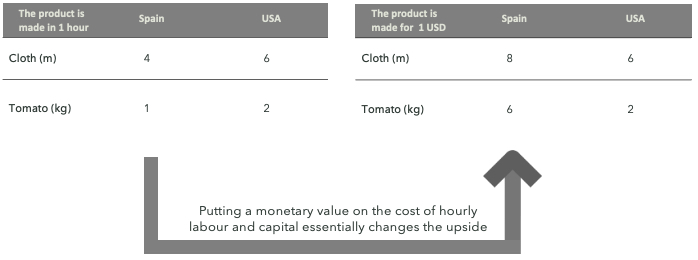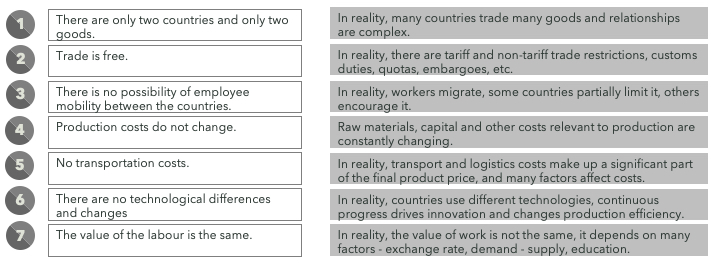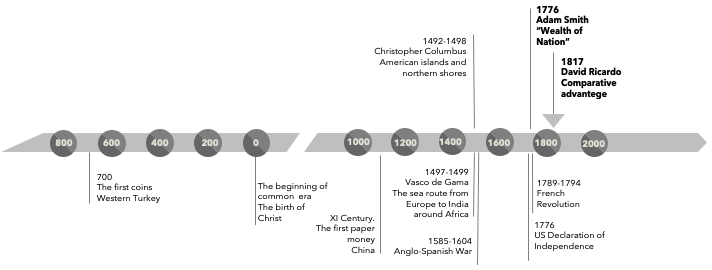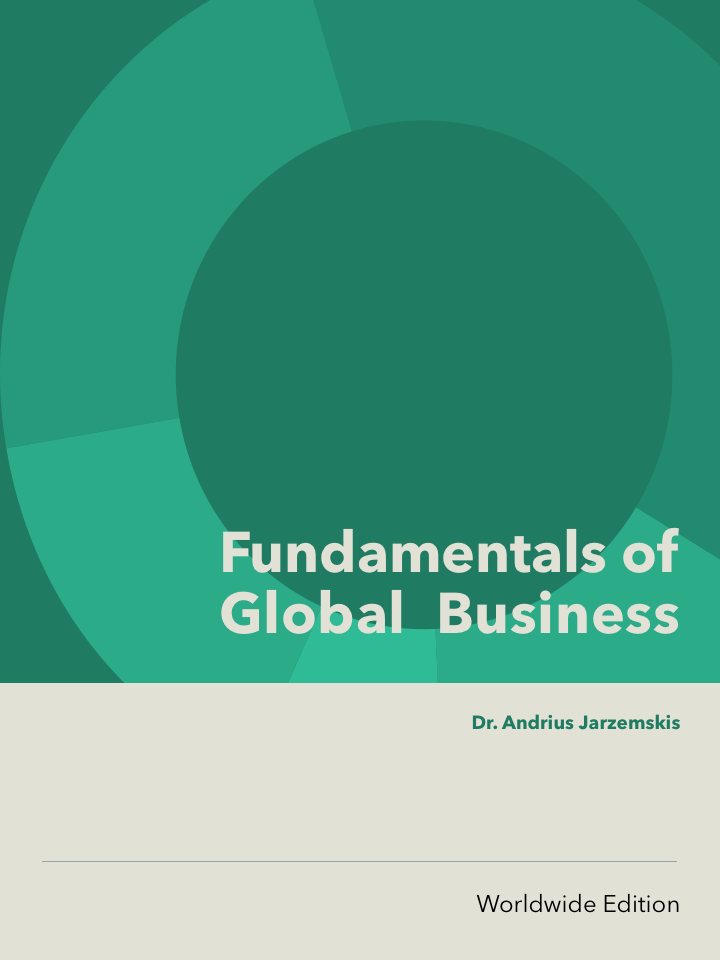This section presents the theory of comparative advantage developed by David Ricardo. The theory of relative advantage essentially explains the emergence of the principles of specialisation and economies of scale and the benefits of their application. The theory described in the chapter laid the foundations for the development of opportunity cost theory. For example, textiles, manufacturing, or other industries can be developed in any country, regardless of climate or geology.
Ex. 1‑9 Example of absolute and comparative advantage in cloth and tomatoes trade

Keywords: tomato, cloths, trade
Ex. 1‑10 Modern countries that are leading the way in semiconductor production
![]()
Keywords: Semiconductors, USA, Japan, South Korea, Taiwan
Ex. 1‑11 The money factor in comparative advantage

Keywords: Money, costs
Ex. 1‑12 Limitations of David Ricardo’s theory

Keywords: Limitations, value of labour, trade, production
Ex. 1‑13 David Ricardo’s period of work in the context of other significant events

Keywords: French revolution, comparative advantage, Adam Smith, David Ricardo
David Ricardo’s (1772-1823) The Period of Political Economy and Fiscal Principles was published 40 years after Adam Smith. In addition to the theory which has been applied to international business, David Ricardo is also known for (1) the theory of reward and profit, (2) the labour theory of value, and (3) the theory of rent and the law of diminishing marginal returns.
Share or comment this information on your social media:
Check Ebook

The paperback book is being prepared for publication. The electronic book will be available for purchase from September 2024.
A.1 Theories of international economics
- Mercantilism
- Adam Smith and Absolute Advantage
- David Ricardo and Comparative Advantage
- Standard Theory of International Trade
- Karl Marx and Communism
- Hekscher – Ohlin Theory
- Paul A Samuelson Theory
- Leontief Paradox
- Rybczynski Theory
- John Hicks and Progress
- Economies of Scale Theory
- Contemporary Business Internationalisation Theories
- Questions for Chapter Review
- Chapter Bibliography
About author
The author has been teaching at several universities since 2005. 40+ scientific publications, 10+ international research projects. More about author.